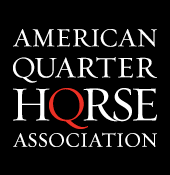One of the questions frequently posed to the American Quarter Horse Association is how it investigates and deals with rule violations. The rules in the AQHA Official Handbook were instituted by the membership to meet the Association’s mission for protecting our horses, ensuring the integrity of the breed and maintaining a fair and competitive playing field. When a member breaks those rules, AQHA has the ability to investigate the violation of the rule and invoke sanctions – from fines to suspension of Association privileges to revoking a membership, along with others. However, it’s also important to remember that the Association’s disciplinary process subscribes to a very basic tenet: that a person is innocent until proven guilty.
“It’s a very basic principle,” said AQHA Executive Vice President Bill Brewer. “You can be innocent until proven guilty or guilty until proven innocent. Which system would you rather live under?”
The Rules
When you become a member of the American Quarter Horse Association, you agree to obey all rules and regulations published in the AQHA Official Handbook of Rules and Regulations. The handbook also contains the rules and regulations regarding the disciplinary process used by AQHA to address situations in which a member has allegedly violated AQHA rule(s).
That said, for the most part, reports of alleged violations generally involve AQHA rules contained in Section II of the AQHA Official Handbook (Registration Rules & Regulations) and Section IV of the AQHA Official Handbook (Show Rules & Regulations).
The Process
Normally, a signed letter of complaint detailing the alleged rule violation must be received by AQHA to initiate an investigation. The investigation involves seeking information from witnesses, the accused person and individuals who may have relevant knowledge of the allegations. If, after reviewing the information regarding the alleged rule violation, AQHA is satisfied that the matter should be considered by a disciplinary committee, AQHA will schedule a time and location for the matter to be heard.
Prior to a hearing regarding alleged rule violations, AQHA provides members with at least 15 days written notice of the hearing time and location. The notice of hearing also contains the allegations in question and informs the members that they have the opportunity, in person and by counsel, to present evidence in their behalf and to hear and refute evidence against them. The person or persons filing the complaint detailing the alleged rule violation, along with any witnesses, may also be notified and have the opportunity to participate in the hearing’s proceedings.
Proceedings before a disciplinary committee are informal, and rules of evidence, both at common law or provided by Texas rules of civil or criminal evidence, do not have to be strictly observed at the hearing.
In the proceedings, the proof necessary to establish a rule violation is the amount of proof that would lead a reasonable person to believe the alleged violation outlined in the notice of hearing is established by the credible evidence presented to the committee. A majority vote of the disciplinary committee determines guilt.
The AQHA Executive Committee is the forum within AQHA that, initially or ultimately, hears or reviews evidence of alleged rule violations. In certain instances, the Executive Committee hears members’ appeals of disciplinary actions levied by other AQHA committees. As an example, the Show Rule Violations Committee was appointed by the Executive Committee to preside over the majority of cases involving show violations . After hearing a particular matter, the Show Rule Violations Committee issues a recommendation to the Executive Committee regarding disciplinary action, if any, that should be levied against the accused. If an accused person is dissatisfied with the Show Rule Violations Committee’s recommendation to the Executive Committee, he or she can appeal the decision to the Executive Committee.
If the Executive Committee determines that a member has violated AQHA rules, the Executive Committee can invoke sanctions, including but not limited to, revoking or denying membership privileges, revoking participation privileges in all AQHA-approved events, denying access or presence on the grounds of an AQHA-approved show, monetary fines, disqualifying a horse and/or denial of a horse’s eligibility to participate in AQHA-approved events.
In addition to the Executive Committee hearing process, a member may be suspended and denied AQHA privileges by AQHA’s Executive Vice President for failure to pay when due any obligation owed to AQHA, an AQHA Affiliate or an AQHA-approved show. Furthermore, a member can be suspended and denied AQHA privileges by the executive vice president for failing to file with AQHA any report required by the rules of AQHA. Prior to the executive vice president taking such action, the member in question receives written notice of the allegations. If the member does not resolve the matter within the time frame established by AQHA, the executive vice president may automatically discipline the AQHA member until such time as the matter is resolved.
AQHA may also accept the conviction of an individual or confiscation of a horse under state, federal, provincial or international law, for an offense of cruelty to or inhumane treatment of a horse as a violation of AQHA’s rules regarding inhumane treatment of horses. In addition, AQHA may accept suspensions pertaining to cruel or inhumane treatment of horses from other recognized equine associations and state racing commissions. In such instances, the member in question may be automatically suspended for a prescribed time period after AQHA receives notice of the conviction, confiscation or suspension.
Finally, members who are suspended or disciplined by the organizations listed in Rule 106(l) are suspended or disciplined by AQHA upon official notice by the disciplining association for the following offenses: (1) unsportsmanlike conduct; (2) inhumane treatment of horses; or (3) prohibited surgical procedure or administration of foreign substances that could affect a horse’s performance or alter its natural conformation. Before accepting those sanctions, AQHA provides the member notice of AQHA’s intention to impose the sanctions. The member may request a hearing before the Executive Committee to present evidence of lack of due process, if any, by the reporting association to merit AQHA’s refusal to not reciprocate the sanction.
This arcticle is only intended to be a brief summary of the AQHA disciplinary process and is not intended to otherwise modify AQHA rules and regulations regarding the process. If an AQHA member finds himself/herself having to participate in the AQHA disciplinary process, they should familiarize themselves with the rules and regulations contained in the AQHA Official Handbook and applicable to their particular situation.









